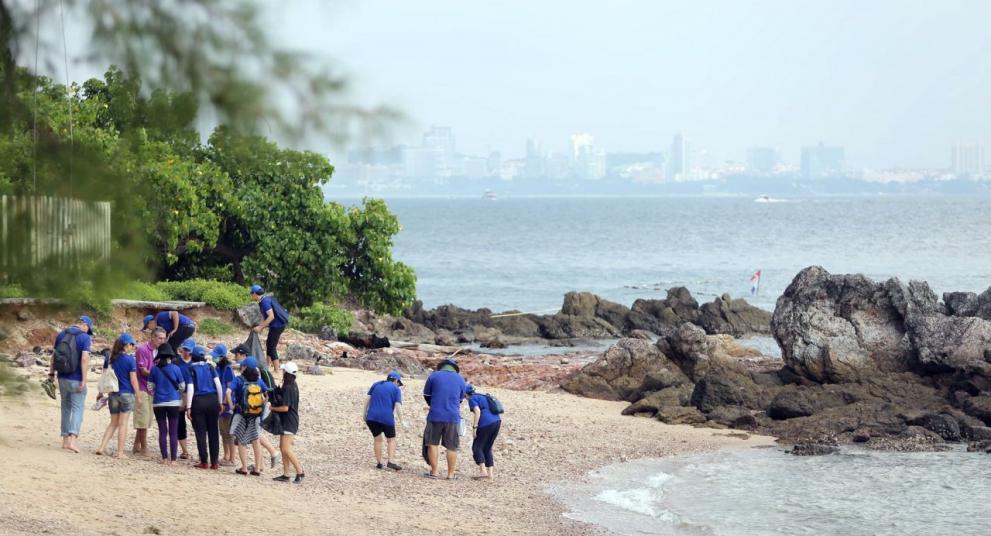
The ambassador of the European Union to Thailand, Pirkka Tapiola, and 60 other EU staff took part in a beach cleaning activity on Koh Sak, Pattaya, on 12 October and found two hatched eggs of gray bamboo shark on the beach filled with plastic debris.
“The fact that we found the eggs is very encouraging,” said Wayne Phillips of Mahidol University International College, who ran a long-term research on marine plastics and the restoration project of coral reefs on Koh Sak.

According to him, bamboo sharks are quite tasty and have often been hunted by local fishermen. However, the fishing industry is not their only threat. What worries the marine scientist is the marine plastics – straws, cotton buds, bottle caps, plastic bags, fishing gear, and even a human-size broken trash bin – that the EU ambassador, diplomats and their Thai staff found on the shore side by side with the eggs.
Wayne said marine plastics float on the ocean for a long time and absorb marine chemicals, making them smell like food for marine animals.
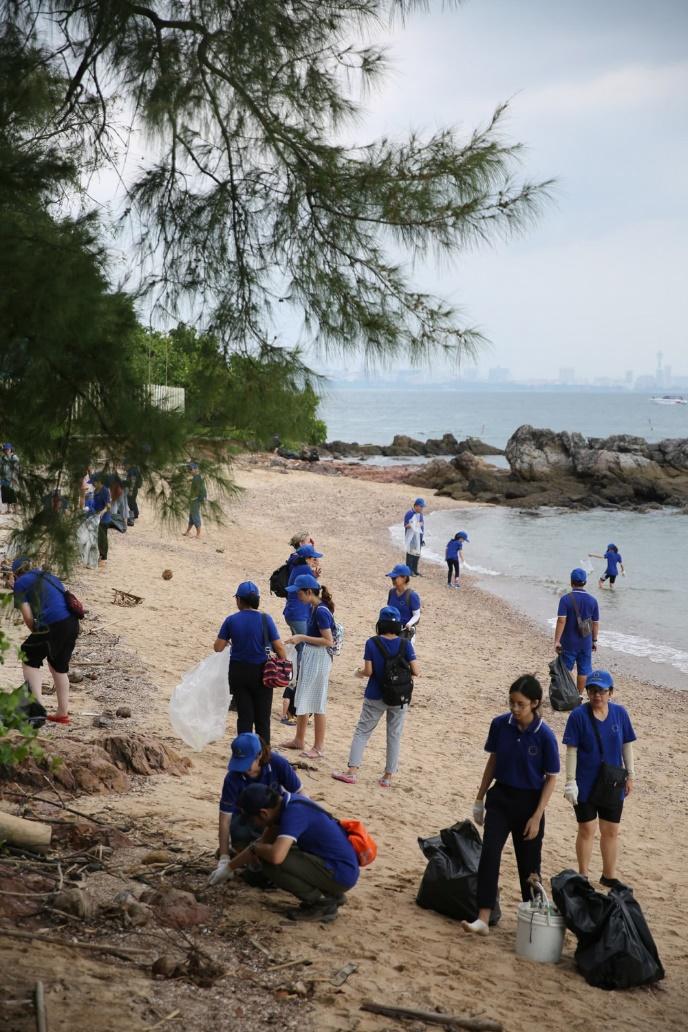
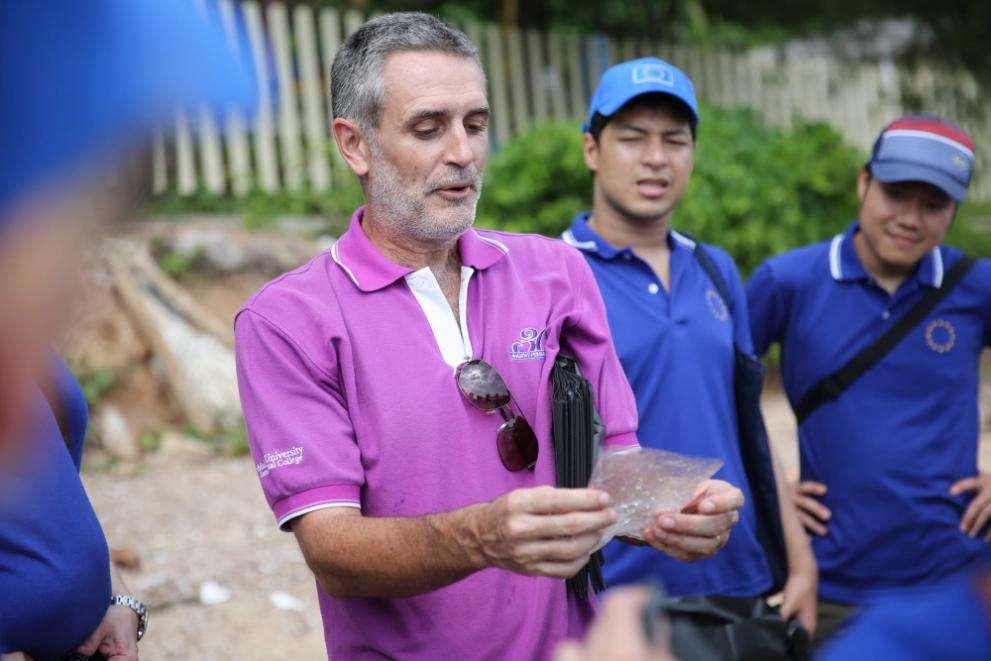
The tasty odour, scientifically called dimethyl sulfide (DMS), makes many marine lives like fish, birds, and sharks mistake plastics for food, he said. Grey bamboo sharks lay eggs on the seaweed, and once the baby hatches, “it will start looking for food, which makes me worry if it is going to eat that [tiny piece of plastic,]” he said.
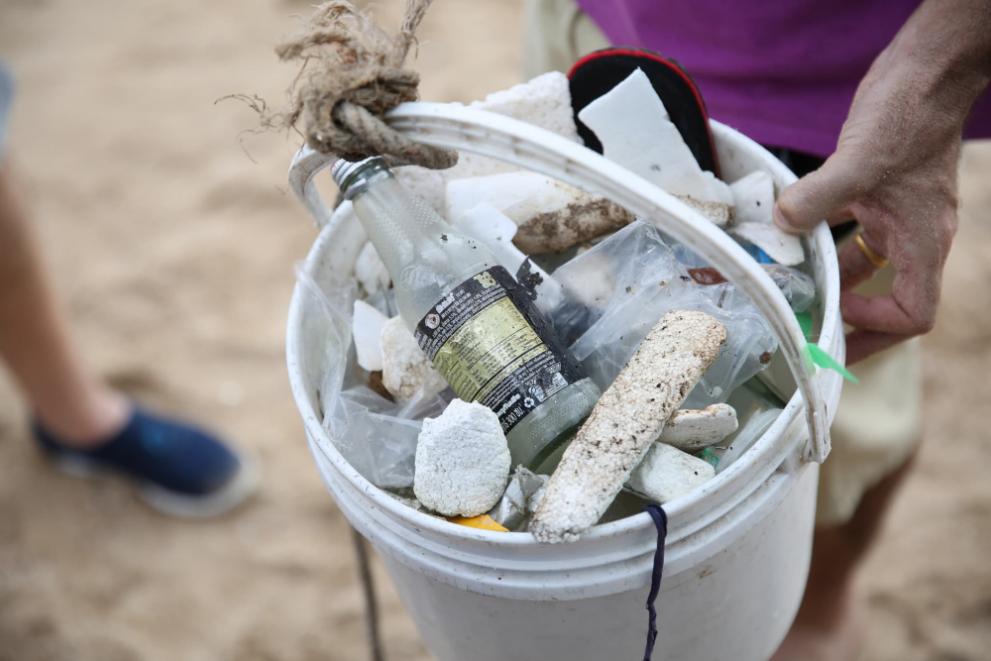
Plastic pollution and marine litter have become a global concern. Across the world, plastics make up as much as 85 per cent of beach litter, EU Ambassador Pirkka Tapiola said. If the current trends continue, there could be more plastic than fish in our oceans by 2050, he said.
“We need to be conscious every time we take a plastic bag from the shops and every time we take a straw, it is very likely that they will end up in the marine environment,” he said.

The EU recently adopted the European Strategy for Plastics to reduce plastic waste. It aims to extract maximum value from all products and waste through greater recycling and reuse and promotion of sustainable consumption.
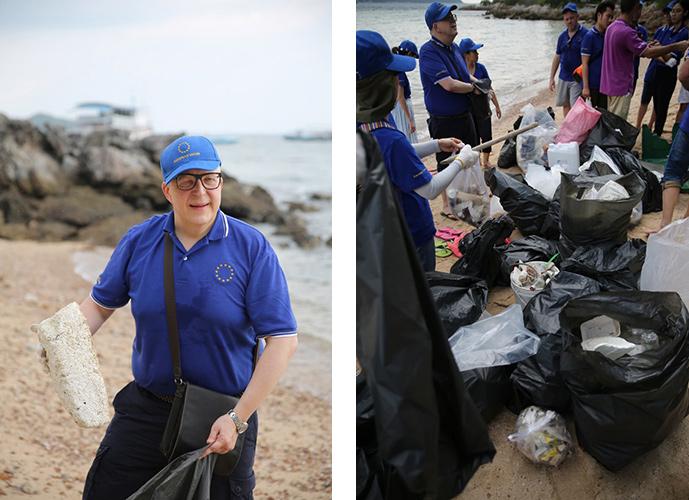
This article was initially published in The Nation on 14 October 2018.
Watch this video to find out more about how the EU helps protect our oceans:
Details
- Publication date
- 26 October 2018
- Author
- Service for Foreign Policy Instruments
